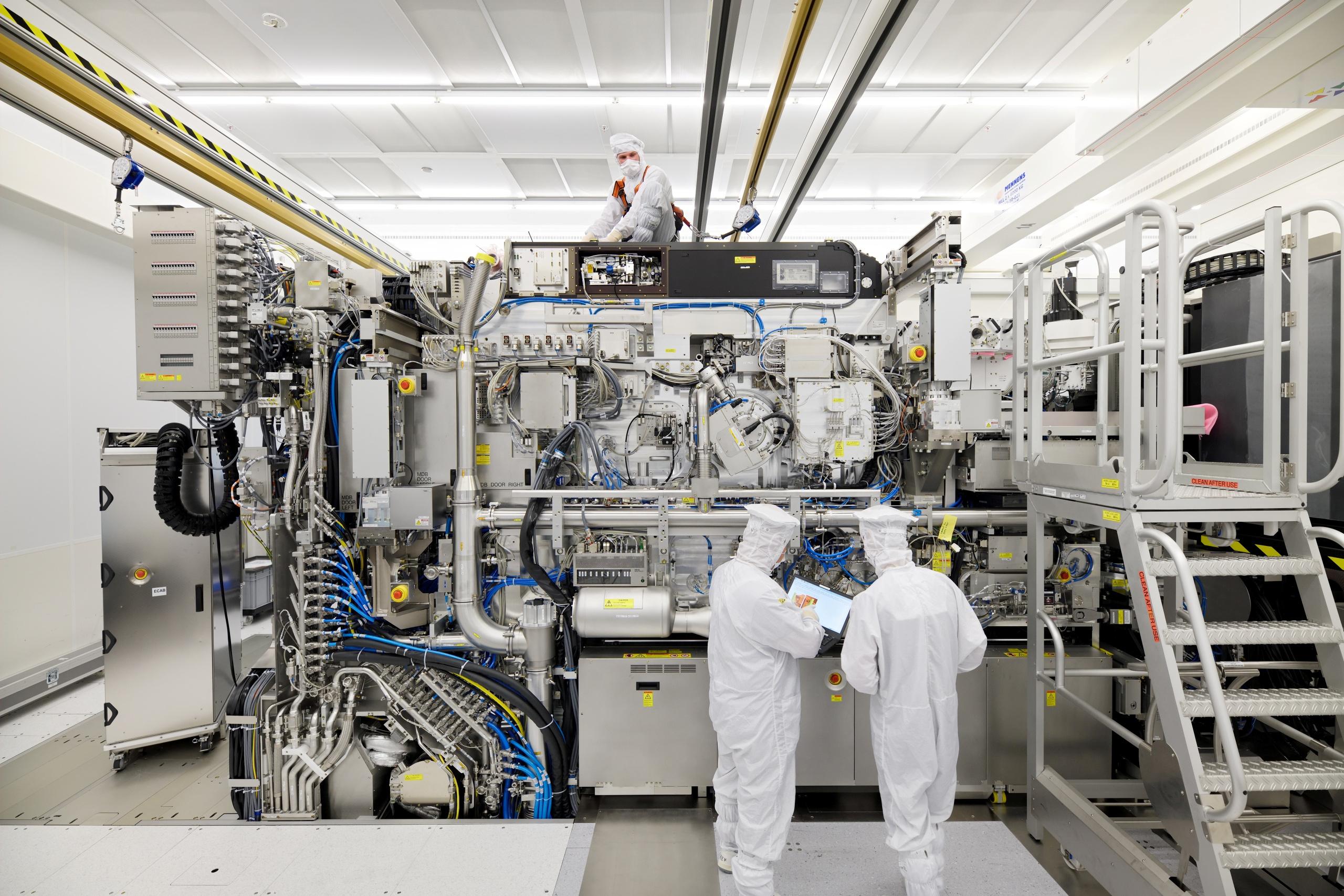

ASML's TWINSCAN NXE:3400B semiconductor lithography tool. Image credit: ASML
Global chip sales contracted in September for the first time since early 2020 as industry figures indicated the worldwide chip shortage is quickly turning into a glut.
Semiconductor sales worldwide for the month declined 3 percent from the same month a year earlier, according to the Washington-based Semiconductor Industry Association.
Industry watchers reported shrinking demand for consumer electronics, smartphones and computers, which skyrocketed during the lockdowns of 2020, while contract chip makers such as Taiwan Semiconductor Manufacturing Co. (TSMC) have seen their biggest customers cancel orders.
Global 5G smartphone shipments are projected to shrink by as much as 150 million units in 2022, with demand for 5G chips to fall by an estimated 100 million to 120 million units, according to Strategy Analytics.
At the end of June global inventories of finished smartphones reached 200 million units, while smartphone makers have cut at least three rounds of orders to semiconductor makers so far this year, an unnamed mobile industry source told Beijing-based media group Caixin.
Many phone makers accumulated six months of stockpiles of phones and components based on higher sales projections from last year and previous chip shortages, analyst Xie Ruifeng of ICwise said in the report.
Smartphone makers have high inventories of mid- to low-end 5G chips and radio frequency chips, said Sravan Kundojjala, associate director of smartphone component technology services at Strategy Analytics.
Meanwhile, Gartner estimated that wordwide PC shipments totalled 72 million units in the second quarter of 2022, down nearly 13 percent year on year, the biggest decline in nine years.
Demand for chips in smartphones and personal computers accounts for more than half of worldwide chip foundry capacity.
TSMC, the world’s biggest contract chipmaker, saw reduced orders from four of its biggest customers, AMD, Nvidia, Qualcomm and MediaTek, JPMorgan Chase said in a September report.
In South Korea, a major producer of semiconductors, manufacturers produced 3.5 percent less in September than a year earlier, up from an 0.1 percent decline in August, the country’s national statistics office said on Monday.
South Korean chip inventory growth remained elevated at 54.7 percent in September, according to figures from Statistics Korea.
Samsung Electronics’ net profit missed estimates in the third quarter and the company said it does not expect a recovery until at least the second half of 2023.
The shifting situation has not improved constraints in the automobile industry, where chips remain in short supply. Automobile chips account for less than 10 percent of the total chip market.
Meanwhile chipmakers have been building new capacity amidst the shortages since the second half of 2020 and this is set to begin coming online toward the end of this year, meaning the chip industry is likely to see a sustained period of overcapacity – a periodic occurrence in the semiconductor market, which tends to experience sharp boom and bust cycles.
Wafer demand in 2023 is expected to be about flat with 2022 or slightly lower, while capacity is expected to grow by about 7 percent, according to figures from Counterpoint Research.
But Counterpoint said demand for the most advanced smartphone chips continued to grow, signalling strong demand for high-end devices such as iPhones.
Mark Zuckerberg firm Meta Platforms makes adverts on Threads app available to all eligible advertisers…
Ten former staffers ask attorney generals in California and Delaware to block OpenAI's for-profit conversion
European regulators have issued both Apple and Meta Platforms with fines totalling hundreds of millions…
Zuckerberg rebuked. Facebook’s Supreme Court seeks review of Meta's Community Notes tool that replaced fact-checkers
Ransomware has become big business. This article reveals how cybercriminals operate, why attacks are surging,…
Struggling chip giant Intel posed to announce plans to cut more than 20 percent of…